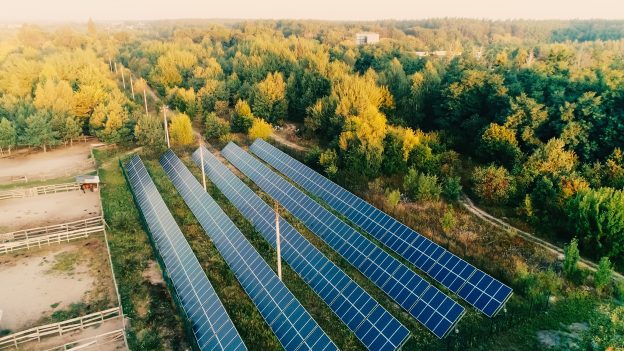Taiwan's Foxconn Technology Group on April 2nd, 2016 formally paid 388.8 billion Japanese yen for a controlling stake in Japan's Sharp Corporation. As the Taiwan firm has recalled the original commitment of not selling off any part of Sharp, Sharp’s Solar Business, which had lost money, is possible of being disposed of or being massively reformed.
Sharp's Solar Technologies Didn't Perfectly Align with Foxconn's Solar Strategies
Foxconn's solar strategy is recognized as to develop large-scale PV power plants majorly in China and India. In 2015, Foxconn started to invest in solar industry in India by establishing a jointed venture with Japan's SoftBank and India's Bharti Enterprise to develop up to 20GW of solar power plants. This Taiwanese assembler group also corresponded with the US Apple's strategies and built 600MW of solar power generating facilities in China.
As for Sharp's current solar energy technology status, Sharp has roughly 600MW of module capacity, while the PV cells has mostly been outsourced. As one of the four major solar industry players in Japan, Sharp's core technologies are BLACKSOLAR and HIT high efficiency PV cells. The company takes residential rooftop PV systems as its main development target.
We can see the strategy differences between Sharp and the acquirer.
Foxconn's major reasons for buying Sharp were the display panel business, including liquid crystal display (LCD) and organic light-emitting diodes (OLED) technologies, according to Japanese media Tokyo Keizai.
Mainichi News also pointed out that amid the buyout amount of 388.8 billion Japanese yen, 200 billion yen will be invested in OLED technologies development and equipment procurement.
Since Foxconn is the world’s largest original design manufacturer (OEM) of iPhone, Sharp's OLED technologies might help Foxconn to win over S. Korean rival LG. Relatively speaking, in order for Foxconn to enhance its competitiveness advantages, Sharp solar division's technologies or branding has not been highly necessary.
Furthermore, Sharp Solar has lost money in the fiscal year of 2014 for up to 62.6 billion yen, but its status was not apparently improved in 2015 fiscal year.
To sup up, Sharp Solar might help Foxconn in terms of technologies and branding, but its business deficit and the differences of both sides' development strategies brought a cloud of doubt over the Sharp Solar's future.
EnergyTrend’s Viewpoint
Let's think about the meaning of Sharp Solar toward Foxconn in terms of technologies synergies and branding effects. First, the technologies of Sharp’s PV products did not have a significant breakthrough in the past year. Sharp paid more attention to strengthen its home energy management system (HEMS) solution.
Then, as for supply chain logistics, EnergyTrend learns that the mainstream module demand in China and India has gone to 60-cell 255~260W multi-crystalline modules, which have been in the same watts range as Sharp's equal level products. Foxconn already started to build supply chains in China and India, and Sharp's multi-crystalline modules plants that are located in Japan, the other far end of Asia. Therefore, Sharp Solar's products will highly unlikely supply to the China's or India's market.
Sharp Solar's branding provides limited help to Foxconn as Foxconn targets at China and India, where emphases more on C/P ratio instead of brand.
If Foxconn continues to operate Sharp’s solar business, it might massively reform Sharp’s solar structure to stop losing money and make up for the loss of money. Foxconn might develop core technologies, such as low-temperature polycrystalline silicon (LTPS), and use Sharp's brand and existing channels to enhance Foxconn's solar business, in order to build foundation to enter the high-end market in the future. To be short, if Foxconn incorporates Sharp’s solar business under its umbrella, this means Foxconn will upgrade its solar business strategies to a higher level.
It is undoubtedly that Sharp’s solar business needs reformation no matter who is going to operate the business branch in the end. Sharp’s solar products are mostly supplied to Japan's local market, but Japan's demand has started declining. As a result, reformation of Sharp’s solar capacity will provide limited newly transferred orders and new supply. To other solar energy rivals, this trend means that Sharp will recede to the lower ranking in terms of solar market share.
(Author: Rhea Tsao, Chief Editor, EnergyTrend. Translator: Janet Chen, Translator at TrendForce Corp.)







